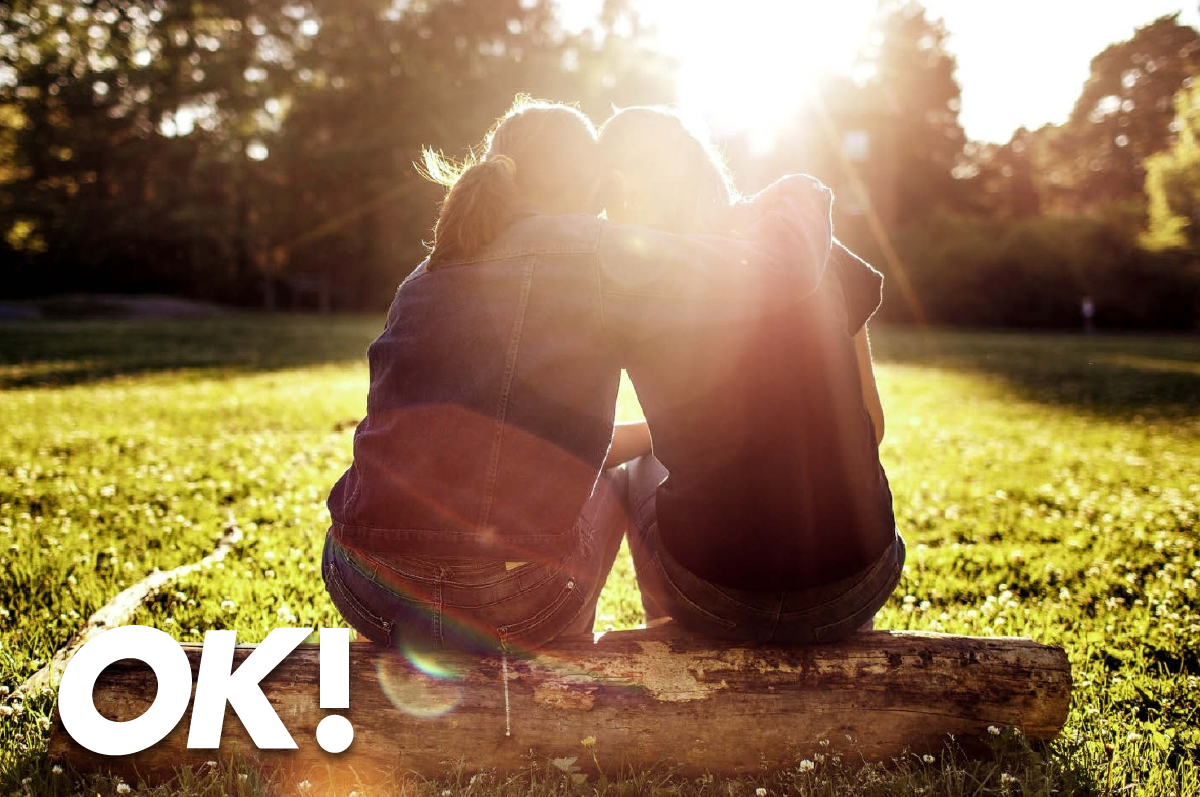Coping with a sudden death

Liam Payne’s tragic and untimely death has sent shock waves around the world. Fans who grew up with One Direction and followed their every move will be struggling with feelings of grief, not dissimilar to those felt when Diana, the former Princess of Wales died. For others, the news of such an unexpected death may trigger or reawaken feelings of grief for a personal loss.
How do we cope with such feelings when someone dies in this way – whether it’s a family member or a much-loved celebrity? OK! spoke to two grief experts to find out what emotions people can expect to feel, why they are valid, and how to break the news to younger children of the death of a loved one, such as a parent.
“A lot of people will think they don’t deserve to feel the grief, and they’re sometimes surprised by the depth of grief they feel. But it’s important for people to acknowledge their grief is real.”
If someone in your life is struggling to come to terms with this kind of news, there are steps you can take. Dr Gisela Caseiras, a psychodynamic psychotherapist working with children, adolescents and families (likeminds.london/dr-gisele-caseiras), explains, “It’s a lot to process. Don’t rush it. Take time. Be kind to each other: when someone is talking about it, it’s their way of processing it. Don’t minimise it by saying, ‘You didn’t even know that person.’ Be a good listener to your friends and to yourself.”
When a celebrity dies suddenly, it can also trigger feelings of grief for people we have lost in our own lives, which can exacerbate the emotional distress. How do we explain this? Dr Caseiras says, “The brain immediately links it with losses you’ve experienced before, especially if that personal grief hasn’t really been processed.”
Dipti adds, “There’s still a lot of taboo and stigma around loss and showing emotion, and I think that has something to do with it. We live in a very grief-illiterate society. When we experience personal loss, there’s often pressure to quickly be OK, to be strong and carry on. With a mass outpouring of grief after someone in the public eye dies, it’s like we have permission to express our emotions – it feels OK, because no one’s being strong at that point.”
When someone dies suddenly and unexpectedly, the emotions experienced are different to when someone dies after a long illness, and loved ones have had time to say goodbye or go through what Dipti calls “anticipatory loss”.
She explains, “In sudden bereavement, there is shock. Shock is a cleverly designed function of our bodies – it’s a protective factor that enables you to cope in the immediate aftermath. For instance, Liam’s ex-partner Cheryl Tweedy will currently be thinking about her little boy, Bear, and making sure he is protected.”
When the initial shock and disbelief wear off, feelings of loss, anger and despair may rise to the surface. Dipti says, “People don’t understand: they think, ‘When it first happened, I seemed OK – why do I feel worse now?’ It’s because the shock starts to dissipate and then we really feel the loss.”
That loss can manifest as a complex set of emotions. Dr Caseiras explains, “There’s denial, there’s anger, there’s wanting to do something about it, but there is also wanting to forget about it. Those are stages of grief, but they could happen all on one day. It could suddenly hit you and you feel upset or extremely sad. Then you forget about it for a few hours. Emotions can change throughout the day – they go through cycles.”
Young children may process grief in a different way to adults. In the situation Cheryl tragically found herself in last week – telling a child their parent has died – there are some clear dos and don’ts adults should try to follow.
Dipti says, “The first thing is telling the child in very clear language. Don’t use phrases like, ‘Your dad has gone to sleep,’ because then the child may become fearful of going to sleep. Say that someone has died, but don’t overshare information. Instead, encourage the child to ask questions if they have any.”
After the initial shock has passed, the surviving parent may notice the child has separation anxiety, especially at bedtime. “Make sure the child knows you are available to talk,” says Dr Caseiras. “When they ask questions, go as far as they want to go. They may ask, ‘What happens when we die?’ Give the answer that feels genuine to you.”
Both our experts are in agreement that, where possible, it’s best to take the child to the funeral.
Dipti explains, “Rituals and funerals exist for a reason, and as human beings, these give us closure. It’s not going to be comfortable or a happy occasion, but it is part of life. The more we keep children away, the more taboo it becomes.”
Dr Caseiras adds, “It’s a very intense event that is very sad, but there’s also so much love. You see loved ones getting together. There are tears, there may be laughter, and there are people talking about how important this person was for them. The child is able to see they weren’t the only person who loved and cherished that person.”
For more advice and support, visit samaritans.org, thegoodgrieftrust.org, childbereavementuk.org and griefmatters4all.co.uk
Why you can’t stop picking your spots (even if you want to), according to a psychologist
If you secretly enjoy popping whiteheads or spending your evenings in...
How healthy is your relationship? The simple ways to find out
The key signs of a healthy relationship… Attraction and intimacy While it...
12 things you should never say to your partner
Did you know that telling someone to ‘calm down’ during an argument might...
“As the ‘forgotten friend’, I’m often a better friend to others than they are to me, and it’s lonely”
Are you there for everyone else but rarely prioritised in return? Here’s...
Don’t feel scared at thought of an ‘empty nest’ this September if you’re a solo parent – try to treat this seasonal time of transition as an opportunity to rediscover ‘you’
Whether you co-parent with your ex-partner or are bringing up your child...
Adolescent Mental Health
This article was published on Dr. Sophia Khalique Medical Practice's blog...
Benefits of group & individual therapy
As seen in the Simon, a 42-year-old graphic designer, recently undertook...
Why do I binge-eat and how can I face my guilt?
As seen in A few months ago I was tidying up after my youngest son’s...
Would you like to join our mailing list?
From time to time we may notify you of new blogs on the website, or share thoughtful, relevant articles and content, aimed at informing and helping people.
© 2020 Likeminds Psychotherapy and Coaching - London | Glossary | Privacy Policy | Site by Diagonal








